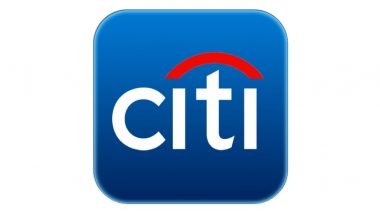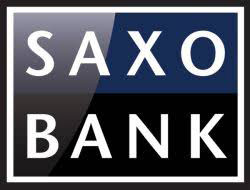FAQs
When will the BTRM commence?
Cohort 20 starts on Wednesday 2nd October 2024
How long is the course?
The examined part of the course takes place over 6 months, with the examination taking place at the end of the course.
What is the fee & early bird structure?
There is a 20% discount available until 24th May, 15% discount until 26th July and 10% discount available until 13th September, 2024.
Why take the BTRM rather than the Cert.BALM?
The BTRM teaches actual practitioner best-practice in bank balance sheet risk management. It is not academic and it is not theoretical. The programme is unique in having a diverse, hand-picked faculty, representing both large and small banks and building societies, each of whom teach what they actually do on their desks. Emphatically practical in nature, course participants graduate from their 6-month BTRM experience with a highly applied treasury/ALM skillset and comprehensive knowledge across all areas of bank treasury. And the Faculty teach from their own published works, not other people’s textbooks. The course is taught by practitioners for practitioners.
The BTRM programme is not a bootcamp, nor a qualification dictated by a selection of academic texts. It is a lecture-driven professional programme with lectures delivered every week for 6 months specifically for banking professionals. The faculty support is extensive and continual due to the global presence of BTRM course participants. The BTRM is a truly global qualification, and interacting with bankers from different jurisdictions provides a richer learning experience for everyone.
The BTRM also addresses topics covered only lightly, or not at all, by Cert.BALM but which are still important for Treasury practitioners. These include subjects such as centralised clearing, the derivative XVAs, model risk management, climate change risk and constructing the yield curve – to name but a few. Its syllabus is more complete than Cert.BALM’s syllabus. Finally, each student can engage in detailed technical conversations with the Faculty during the programme and for the remainder of their professional career, thru our Alumni Forum and BTRM unique Lifelong Learning approach. This permanent online relationship is not available at Cert.BALM.
Visit our testimonial page: “BTRM is led by practitioners for practitioners! Every single lecture was rich in content, connecting real life examples and experiences. Highly recommended for Treasury professionals.”
How does the BTRM Lifelong Learning work?
At the BTRM we have taken a unique approach and made Lifelong learning simple. At any point going forward all Alumni can access the next cohort. You will be able to join the new lectures live with the current crop of students.
Who should attend the BTRM?
The BTRM Certificate of Bank Treasury Risk Management will enhance the careers of the following:
- Treasury Senior Management
- Heads of ALM / Money Markets
- Asset-Liability Committee (ALCO) membership
- Heads of Balance Sheet Management
- Senior Risk Management
- Liquidity Managers
- Liquidity stress testing
- Balance Sheet Managers and Funds Transfer Pricing
- Money Markets / Repo Traders
- Collateral management
- Treasury consultant
- Product controllers
- Financial accountants
- Regulators in the liquidity risk space
- Policy analysts in central banks
Can I defer my Bank Treasury Risk Management educational learning?
At any stage during the BTRM you may defer your education until the next cohort. The cohort runs twice per annum, every April and October.
How do I write the final examination if I’m based outside of the UK?
All non-UK based students sit the exam at their own desktop, using the BTRM online examination and digital invigilator system.
Where do I attend the course?
The course is globally online but can be attended in-person at One Canada Square, Canary Wharf, London. Weekly lectures at 17.30 every Wednesday, and selected other weekdays, for up to 3 hours.
How do I access the live global streaming lectures?
The live streaming will be available on Cisco Webex, you will be given weekly login access details.
What happens if I fail The BTRM?
You will have one chance to retake the final examination.
What happens if I miss a lecture week?
All the live streamed lectures are recorded and are available for you in your BTRM member’s area for the duration of the course.
Can I stagger my BTRM payments?
Yes, the BTRM offers flexible payment options where candidates can pay for the course by instalments.
Option 1:
- Pay in full on Registration
Option 2:
- Full course: Pay 50% on registration and 50% in week 14
- Stage 1 Only: Pay 50% on registration and 50% in week 12
- Stage 2 Only: Pay 50% on registration and 50% in week 14 (Lecture week 23)
- Self-study pack: Pay 50% on registration and 50% prior to taking the final examination
Option 3:
- Full course: Pay £1000 on registration, 50% of remaining balance at week 11 and the final 50% in week 21
- Stage 1 Only: Pay £1000 on registration, 50% of remaining balance at week 6 and the final 50% in week 12
- Stage 2 Only: Pay £1000 on registration, 50% of remaining balance at week 7 (Lecture week 20) and the final 50% in week 23
- Self-study pack: Pay £1000 on registration, 50% of remaining balance to qualify for Stage 2 and the final 50% prior to taking the final examination
Is it possible to take only selected modules?
The BTRM offers two flexible study options so you can decide how to complete the course:
- Full Course: Complete the 5 modules in 6 months
- Stage 1 & 2: Complete the 5 modules in 2 x 3 month stages. Please note that candidates must pass Stage 1 and then Stage 2 to become BTRM certified. Stage 2 cannot be taken as a stand-alone.
How do I register for The BTRM?
Register online or complete and send the registration form in the brochure to: enquiries@btrm.org.
What level of mathematics is required?
Students should have a numerate academic qualification and be familiar with spreadsheet problem solving.
What happens if I am unable to complete the course in six months?
It is possible for students to defer completion of the BTRM to the next cohort at no extra charge (only one deferral is permitted).

































